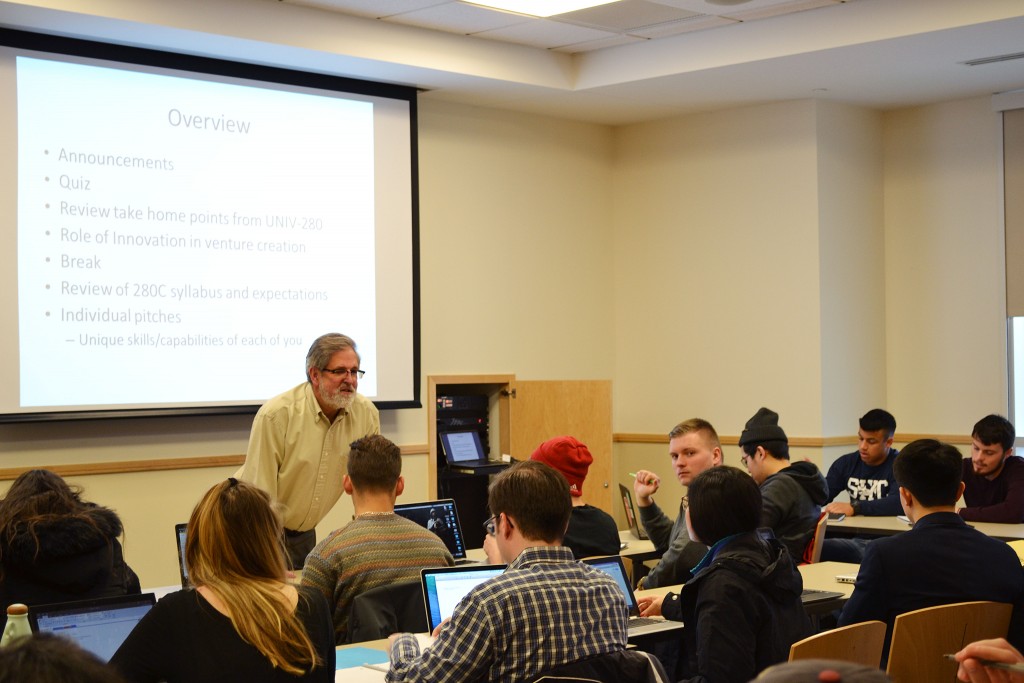
Whether they’re studying finance or music, professor Kenneth McLeod wants students to know that they can one day become their own boss.
The two-credit course UNIV 280C, New Venture Accelerator II, is the second half of a two-part class, each of which can be taken without the other section as a prerequisite. The first class offered in the fall semester is more theoretical, teaching the logistics of navigating entrepreneurship, such as the likelihood of initial failures. The spring portion requires students to get involved and become entrepreneurs themselves by successfully launching a venture of their own.
The class was formerly offered under the engineering department until last semester, when McLeod turned it into a University-wide class. McLeod, an engineering professor, said that he opened the class so that more students, regardless of their major, can create a job for themselves with innovative thinking and a proper skill set.
“I want them to have more options; I don’t want them to panic when they graduate or be saying ‘I don’t know what to do with my degree,'” McLeod said. “I want them to be saying, ‘I have this very cool degree and look at all the cool things I can do with that.’ If nothing else they can launch a venture and employ themselves and they know how to do that and they’re comfortable doing that.”
The class walks students through the entire process of launching a business venture, from how to develop a product or an idea to how the product can be distributed on the market. It also encourages students to take advantage of the Innovative Technologies Center’s (ITC) $25,000 fund for student-run ventures, which can cover expenses a student entrepreneur might incur, such as travel. Anyone can write up a proposal for funding, which usually amounts to around $1,000.
McLeod also encourages students to create their ventures in the Binghamton area. He said he wants students to realize the area’s potential for growth and that they don’t need to leave the area to be successful.
“We also are focused on economic development of the region,” McLeod said. “I’m hoping that once somebody wants to launch they say, ‘Wow look at this whole support system I have here, I think the right place to launch is in the Southern Tier of New York,’ so I’d like that as well.”
Mark Joinnides, who graduated in 2008 with a degree in bioengineering, took the class nine years ago. Since then, he said he has launched several start-ups and is now working as a consultant at an NYC-based biotechnology start-up. He said that an innovative way of thinking is very important, especially for college students because they are at a flexible time in their lives.
“A lot of people I meet just put themselves into this box artificially and they think of college as just a means to an end to get a job,” Joinnides said. “In my opinion that’s boring; not everyone is going to make a fortune as an entrepreneur, but I think McLeod realized as college students now’s the time to try and fail at things.”
David Axelrod, a sophomore majoring in business administration, is taking the second part after taking the fall class. He said that innovative thinking is a skill that can help students whether they plan on starting their own venture or if they are choosing a more traditional career path.
“I think it’s absolutely imperative that young students get really involved in entrepreneurial ventures,” Axelrod said. “They can then take those skills and either work on their own and always have it as a fallback if a traditional career doesn’t go so well, or do something called entrepreneurship, and use these skills we learned in the class and apply it to your area of expertise to innovate from within.”


